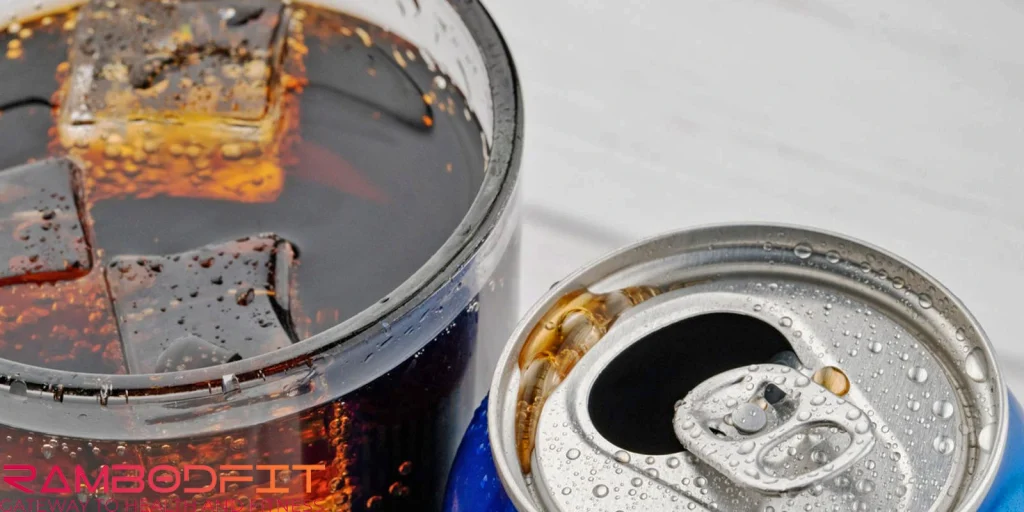


Coca-Cola Zero, marketed as a sugar-free option to regular soda, has become popular among people who want to cut down on calorie intake while still enjoying a bubbly drink. Yet, questions have come up about how it might affect kidney health for athletes and fitness buffs who might drink it often.
Here at RambodFit, we look into what’s in Coca-Cola Zero, how these ingredients affect kidney function, and if this drink is a good choice for those who care about their performance and long-term health.
Table of Contents

Coca-Cola Zero Sugar (renamed from Coke Zero in 2017) has these main ingredients:
Coca-Cola Zero has no sugar, but its artificial sweeteners and acidic content raise concerns about potential long-term kidney damage.
The Nurses’ Health Study has revealed that women who consumed two or more diet sodas daily saw their kidney function deteriorate 30% quicker over two decades compared to those who didn’t drink any. The glomerular filtration rate (GFR), which measures how well kidneys work, dropped three times as fast in people who drank diet soda.
Phosphoric acid, a main component in colas, has an influence on creating an acidic urinary environment. This leads to the formation of calcium oxalate and uric acid kidney stones. Research shows that consuming two or more colas daily has an impact on doubling the risk of chronic kidney disease (CKD) compared to people who drink less than one per week.
A 23-year study including over 15,000 people found that those who consumed more than seven glasses of diet soda per week faced an 83% higher risk of developing ESRD compared to those who drank less than one glass weekly.
Aspartame and acesulfame potassium don’t have calories, but research shows they can:

For athletes, staying hydrated and keeping their kidneys healthy are key to performing well and recovering. Even though Coca-Cola Zero has no sugar, it can still cause problems because it:
These factors might:
Swapping water for diet soda can be extra bad, as kidneys have to work harder to clean out fake additives and keep the body’s pH right.
Instead of drinking diet sodas, think about these kidney-friendly options:

Coca-Cola Zero might look like a safe sugar-free option, but drinking it often can hurt your kidneys, make kidney stones more likely, and mess with your body’s processes. Athletes should focus on drinking water and natural drinks to keep their kidneys healthy and perform their best in the long run.
If you like drinking diet soda once in a while, keep it in check, but making it a daily habit might have long-lasting effects on your kidneys.
While drinking it won’t cause immediate damage, drinking it often (2+ servings ) has been linked to faster kidney function decline and a higher risk of ESRD.
Both come with risks:
Regular Coke has high-fructose corn syrup in it. This sweetener has a link to obesity and diabetes, which both increase the risk of kidney disease.
Coke Zero contains artificial sweeteners and phosphoric acid. These ingredients might affect how the kidneys filter and form stones.
Drinking Coke Zero once in a while won’t hurt your kidneys. However, water and drinks rich in electrolytes work much better to hydrate and boost performance. If you choose to drink it, make sure to drink plenty of water, too. This helps reduce stress on your kidneys.